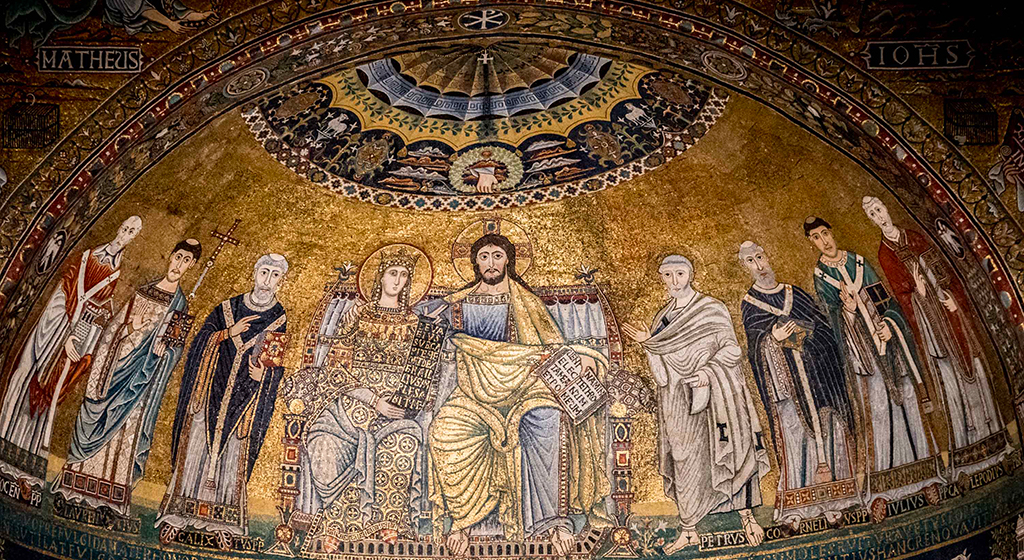Memory of the Church
Memorial of Saint Philip Neri (+1595), "apostle of Rome."
Reading of the Word of God
Alleluia, alleluia, alleluia
I am the good shepherd,
my sheep listen to my voice,
and they become
one flock and one fold.
.
Alleluia, alleluia, alleluia
Acts 18,1-8
After this Paul left Athens and went to Corinth, where he met a Jew called Aquila whose family came from Pontus. He and his wife Priscilla had recently left Italy because an edict of Claudius had expelled all the Jews from Rome. Paul went to visit them, and when he found they were tentmakers, of the same trade as himself, he lodged with them, and they worked together. Every Sabbath he used to hold debates in the synagogues, trying to convert Jews as well as Greeks. After Silas and Timothy had arrived from Macedonia, Paul devoted all his time to preaching, declaring to the Jews that Jesus was the Christ. When they turned against him and started to insult him, he took his cloak and shook it out in front of them, saying, 'Your blood be on your own heads; from now on I will go to the gentiles with a clear conscience.' Then he left the synagogue and moved to the house next door that belonged to a worshipper of God called Justus. Crispus, president of the synagogue, and his whole household, all became believers in the Lord. Many Corinthians when they heard this became believers and were baptised.
Alleluia, alleluia, alleluia
I give you a new commandment,
that you love one another.
Alleluia, alleluia, alleluia
Paul, troubled by his experience in Athens, yet does not think that the Greeks are so far from God and so satisfied with themselves that they are impervious to the Gospel. He leaves the capital and goes towards Corinth, another cosmopolitan city, famous for its commercial harbour. Once in the city, Paul goes towards the house of Aquila and Priscilla, a Christian couple who had been cast out from Rome due to an edict issued by the emperor Claudius against the Jews. The Roman administration did not make any distinction between the Jews and Christians. Paul stays with this family and works with them to earn his living. Luke summarizes well Paul's actions: "He was occupied with proclaiming the Word." It is an indication that should question today's Christian communities and urge them to a greater generosity in communicating the Gospel both by proclaiming and witnessing it. Paul felt the urgency of evangelization and lived it with true passion. And there was no lack of fruits: even Crispus, the head of the synagogue, converted. Corinth then became home to a large community composed of merchants, sailors, slaves and freed men and women, in essence, a community of people from the harbour. The community was lively and dynamic, but also complex, with some problems that came from trying to live together. Bu they felt one people. And yet, with all their limits, those Christians were a true spiritual body, a concrete sign of hope not only for the people of the harbour, but also for the entire city of Corinth. This is what is asked of Christian communities, which today are often a small minority in our complex and pluralistic cities: to be a house of peace and leaven of love that ferment the entire city in its various aspects. The Letter to Diognetus speaks of the Christian community as the soul of the city. It is the sense of the Church "going out" that Pope Francis never ceases to recall. The Church - every Christian community - does not live for itself, but to be "a sign and instrument of the unity of the human race" (Second Vatican Council).
